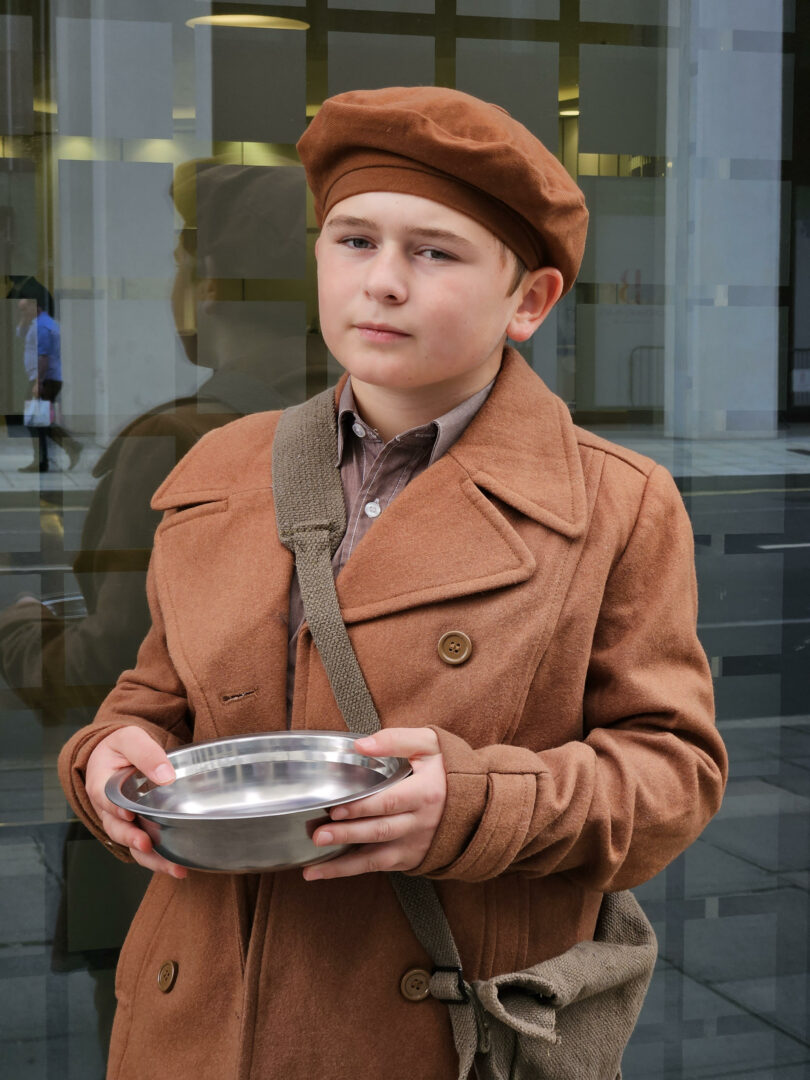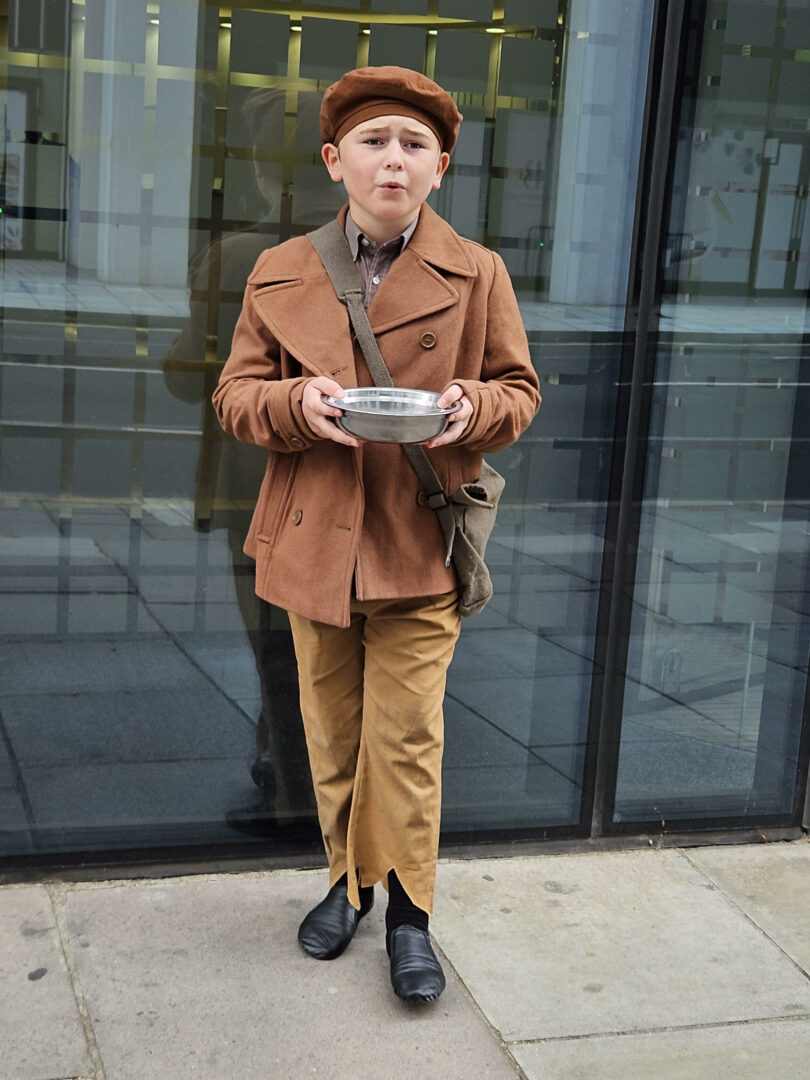Please, Miss, I want some more!
Disability Talk has joined the struggle to persuade government to give adequate support to family carers.
Carer’s Allowance is £76.75 a week for at least 35 hours caring duties. This works out at a maximum of £2.19 an hour – positively Dickensian!
So, ‘Oliver Twist’ visited the Department of Health & Social Care to hand in a letter, with his bowl containing £2.19…

Millions who save billions
There are millions of unpaid carers in the UK. It is estimated that they save the treasury £135 billion a year. Without their caring responsibilities the NHS would collapse. Although figures vary, it is thought that there are more than 8 million unpaid carers in the UK – and we reward them with a benefit of just £2.19 per hour. That’s less than a quarter of the adult minimum wage (£10.42 an hour).
Oliver’s message to the Minister
As ‘Oliver’ stood outside the Department for Health & Social Care, his message to Helen Whately MP (Minister of State for Social Care) was: “Please, Miss, I want some more.”
He was referring to the Carer’s Allowance, which pays some carers £76.75 per week, less than a quarter of the adult minimum wage.

Carer’s Allowance could be increased in stages
The aim of the campaign is to get Government to increase the Carer’s Allowance, over a period of three years, to equal the adult minimum wage.
So the weekly rate by the end of 2024 would be £172.87; 2025 – £268.99; and by the end of 2026, it would match a 35 hour week at adult minimum wage – £364.70
Donna Giles, an unpaid carer, says:
“All across the country, in cities, towns and villages, there is a growing workforce in roles they didn’t apply for, which they have no holiday from. An unpaid carer becomes a carer due to life events and circumstances. An unpaid carer is never off-duty. An unpaid carer must always be available to take up their caring role and responsibilities whenever called to do so.
These people provide unpaid care to a child, parent or both, a sibling, a partner or even a friend or neighbour. They often feel that they are undervalued, unseen and unheard by society.”

